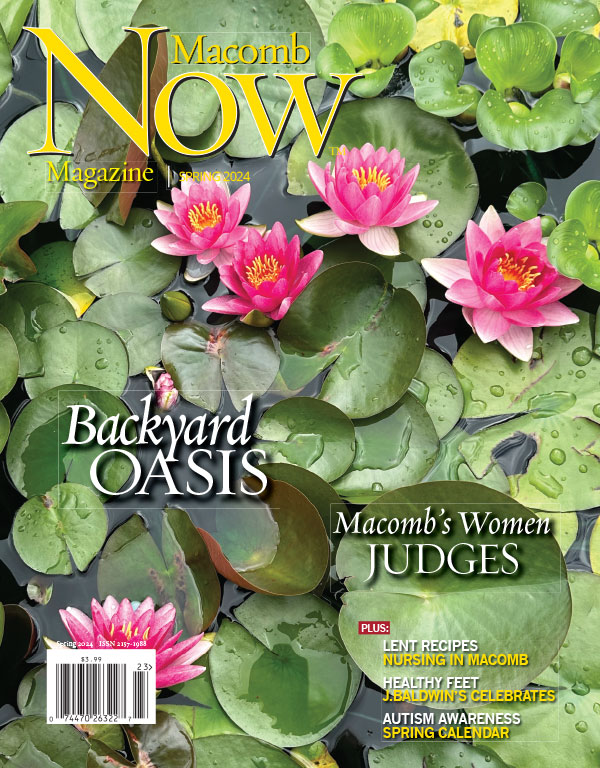Grandparenting 101

By Shelley Galasso Bonanno, MA
Becoming a grandparent is a life-changing event. Grandparents play a special role in the life of their grandchildren. Not only do they pass down family stories and traditions, but they can provide unwavering support and a safe harbor for their grandchildren by listening and providing unconditional love and comfort. But listening to your grandchild’s parent is likely to be equally as important in your role as a grandparent as is providing love and support to your grandchildren.
Just as with becoming a parent, becoming a grandparent does not come with an owner’s manual. It is a role filled with its own unique set of challenges and expectations to navigate. While most grandparents are well intentioned, overstepping boundaries, such as by offering unsolicited advice, can often cause friction between grandparents and their grandchild’s parents. Although offering advice is inevitable and usually intended as helpful and well-meaning, it can be perceived by a parent as judgmental, causing them to feel insecure and inadequate in their role as a parent. While it can be tempting to offer advice or offer your grandchild a change in routine, abiding by the rules and routines established for your grandchild by their parents is generally in the best interest of everyone, including your grandchild.
Keep the lines of communication open and start the conversation early with your grandchild’s parents. Talk to the parents about their ideas for your role as a grandparent and share yours with them. Boundaries can be useful and positive for setting up clear expectations. When boundaries are clearly understood and honored by both parties, parents tend to feel more appreciated in their role as parent and grandparents can relish their role as a grandparent without the responsibility that comes from parenting. After all, while the wisdom a grandparent offers can be unparalleled, parents also desire to feel supported and valued in their new role as a parent. Take time to listen to your adult children and their ideas about parenting and expectations of you as a grandparent. Create a positive space for them to come to you when they feel uncertain, and they will be more likely to be open to and accepting of your advice and knowledge.
Equally important as respecting your grandchild’s parents’ wishes is their respecting your role as a grandparent. Be clear about what you think you can and can’t do as a grandparent. For example, maybe you feel comfortable watching your grandchild for an occasional weekend or limited weekday basis, but you are not comfortable providing full-time childcare for your grandchild. That’s okay. It is easier to offer less support and increase your commitment if you change your mind. Speak up if you feel the parents are asking more of you than you feel ready to provide or if you would like to spend additional time with your grandchild.
Establishing boundaries can be important even if you live a long way away from your grandchildren and their parents. If you are planning a visit, having a conversation about when and how you will spend time alone with your grandchildren as well as with the whole family and doing things for yourself is likely to be useful and avoid unwanted, unspoken expectations by both you and your grandchild’s parents. Be sure to get their ideas as well as share yours.
Being a grandparent is usually a fulfilling role that can create a unique set of challenges including the opportunity for growth in your relationship with your grandchild’s parents. Spending alone time with your own child can also be a way to deepen your connection, increase communication, and serve as a reminder that they are valued too.
In healthy relationships, grandchildren find their grandparents to be a safe harbor— someone they trust and know is always on their side. By listening to and setting up clear communication and boundaries with your grandchild’s parents, you can be a positive presence not only in the life of your grandchild but also in the lives of your adult children as they navigate their evolving role as a parent.
 A lifelong resident of Macomb County, Shelley Galasso Bonanno is a practicing limited licensed psychologist who earned her master’s degree from Wayne State University in 1987. She has a breadth of experience in working with adults, children, families, and couples. In addition to working in private practice, Ms. Bonanno performs consultative services for State and forensic agencies. She performs custody and parenting time evaluations and is a court-approved mediator. Her writings have appeared in various online and print publications. An advocate for mental health, you can follow Ms. Bonanno on Twitter @shelleybonanno.
A lifelong resident of Macomb County, Shelley Galasso Bonanno is a practicing limited licensed psychologist who earned her master’s degree from Wayne State University in 1987. She has a breadth of experience in working with adults, children, families, and couples. In addition to working in private practice, Ms. Bonanno performs consultative services for State and forensic agencies. She performs custody and parenting time evaluations and is a court-approved mediator. Her writings have appeared in various online and print publications. An advocate for mental health, you can follow Ms. Bonanno on Twitter @shelleybonanno.

